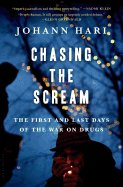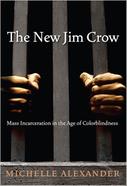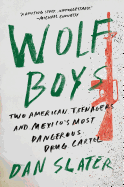The United States has spent an estimated $1 trillion on the war on drugs since the 1970s, and currently has the largest prison population in the world--a large percentage of whom are incarcerated for nonviolent drug crimes.  The problem of drugs--and how to combat them--is not particular to the U.S., however, as evidenced in Johann Hari's carefully researched Chasing the Scream. Hari, a British journalist, spent three years traveling around the world to understand the war on drugs, from its origins in the United States nearly a century ago to the beginnings of its end in Canada, Colorado, Portugal and Sweden. The details in Hari's work can be heartbreaking, revealing the gruesome and cruel stories of the current war on drugs, as well as how racism and racial tensions have both shaped and been shaped by these efforts at prohibition.
The problem of drugs--and how to combat them--is not particular to the U.S., however, as evidenced in Johann Hari's carefully researched Chasing the Scream. Hari, a British journalist, spent three years traveling around the world to understand the war on drugs, from its origins in the United States nearly a century ago to the beginnings of its end in Canada, Colorado, Portugal and Sweden. The details in Hari's work can be heartbreaking, revealing the gruesome and cruel stories of the current war on drugs, as well as how racism and racial tensions have both shaped and been shaped by these efforts at prohibition. Michele Alexander's The New Jim Crow explores the war on drugs specifically through this lens of race and racism. Alexander argues--compassionately and compellingly--that modern drug laws are in fact a continuation of social and racial controls put in place under the Jim Crow laws of the South. Alexander's truths are not easy to read, nor are they easy to live for the millions of people whose lives are affected by the systemic racism in the United State's legal system.
Michele Alexander's The New Jim Crow explores the war on drugs specifically through this lens of race and racism. Alexander argues--compassionately and compellingly--that modern drug laws are in fact a continuation of social and racial controls put in place under the Jim Crow laws of the South. Alexander's truths are not easy to read, nor are they easy to live for the millions of people whose lives are affected by the systemic racism in the United State's legal system.  Journalist Dan Slater focuses on the impact of the war on drugs even more specifically in his book Wolf Boys. Centering his story on two young Latinos caught in the drug war in Laredo, Tex., Slater explores the Mexican drug trade and the impact that the war on drugs has had on youth in the United States--rather than the Mexican cartels it is said to be fighting against. --Kerry McHugh, blogger at Entomology of a Bookworm
Journalist Dan Slater focuses on the impact of the war on drugs even more specifically in his book Wolf Boys. Centering his story on two young Latinos caught in the drug war in Laredo, Tex., Slater explores the Mexican drug trade and the impact that the war on drugs has had on youth in the United States--rather than the Mexican cartels it is said to be fighting against. --Kerry McHugh, blogger at Entomology of a Bookworm

